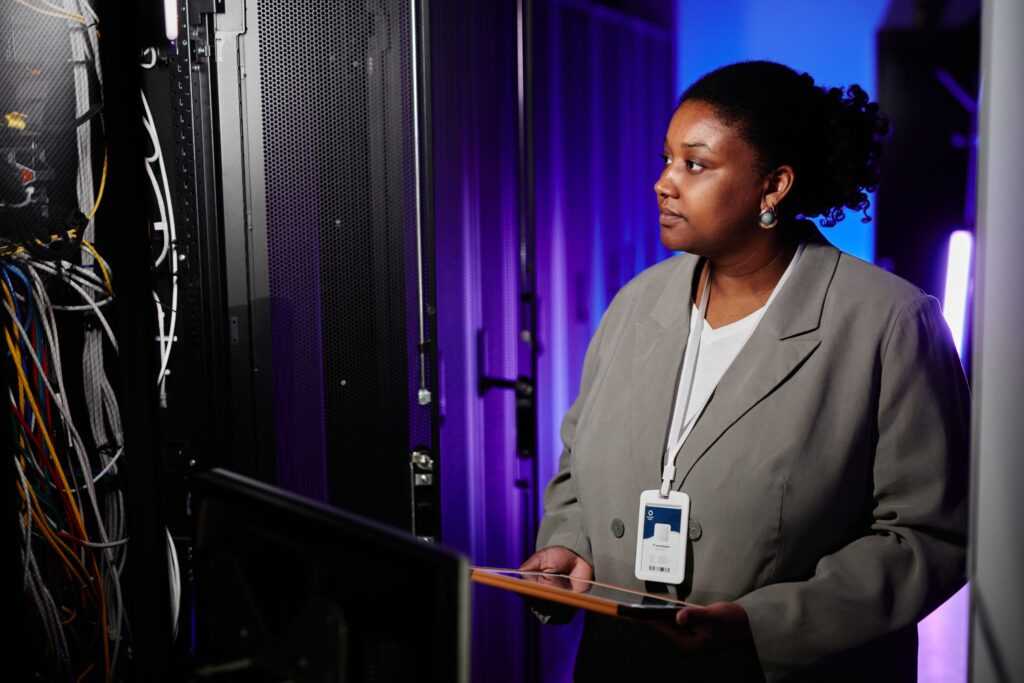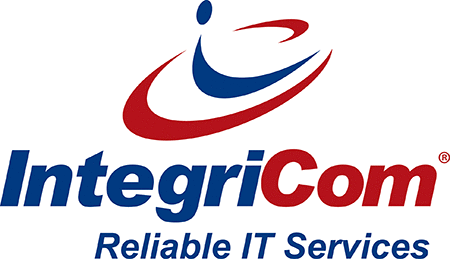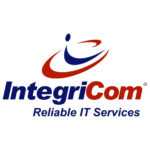Table of Contents
- Introduction
- 3 IT Manager Interview Questions & Answers
- 8 Platform and System-Specific Questions
- 3 Problem-Solving and Decision-Making Questions
- 2 Vendor and Budget Management Questions
- 2 Teamwork and Collaboration Questions
- 2 Professional Development Questions
- 2 Cultural Fit Questions
- How do I evaluate responses effectively as a non-technical interviewer
- Do I really need an IT manager for my small business?
- Summary
Introduction: How to Hire an IT Manager
When hiring an IT manager for a small or midsize business, it’s important to ask questions that will help you assess their technical skills, leadership abilities, and cultural fit within your organization.
If you are an interviewer without technical knowledge, it can be challenging to assess the accuracy of an IT Manager candidate’s answers. In this article, we’ll go over questions you can ask during the interview process when hiring an IT Manager or Director, and we’ll include a few strategies you can employ to evaluate their responses effectively as a non-technical interviewer.
3 Technical Expertise Questions
What is your experience with managing IT infrastructure and networks?
Look for a solid understanding of various IT components such as servers, routers, switches, firewalls, storage systems, virtualization, and cloud services. Look for practical experience with operating systems, network protocols, and security mechanisms.
 Can you provide examples of projects you’ve led related to software implementation, system upgrades, or cybersecurity?
Can you provide examples of projects you’ve led related to software implementation, system upgrades, or cybersecurity?
Software implementation projects are things like:
- Enterprise Resource Planning (ERP) Implementation
- Customer Relationship Management (CRM) Implementation
- Content Management System (CMS) Integration
- Business Intelligence (BI) Implementation
- Point of Sale (POS) System Deployment
Examples of system upgrade projects are:
- Operating system upgrades
- Database management system (DBMS) upgrades
- Network infrastructure upgrades
- Hardware refresh and consideration of hardware or computer warranties
- Virtualization platform upgrades
Examples of cybersecurity projects are:
- A security risk assessment and audit including endpoint security
- Security information and event management (SIEM) implementation
- Penetration testing and vulnerability scanning
- Identity and access management (IAM) implementation
- Security awareness training program
Look for their experience in these types of projects and ascertain their role and success level. Ask how the project turned out and if they were completed on time and within budget. Ask them to explain some of the challenges they faced and how they overcame them.
 How do you stay updated on emerging technologies and industry trends?
How do you stay updated on emerging technologies and industry trends?
Recognize that technology is constantly evolving, and good candidates should be staying curious, proactive, and open to learning which is essential in staying relevant and informed about emerging technologies and industry trends.
You want to hear things like they follow technology news websites, read newsletters and blogs, listen to technology podcasts, are members to professional associations, forums & user groups, attend conferences and webinars, subscribe to online learning platforms, and engage in open-source communities.
8 Platform and System-Specific Questions
When interviewing an IT manager candidate, you can ask questions about various types of IT systems relevant to and used in your business, but tailor these questions to align with your specific systems and technologies. It’s important to assess the candidate’s knowledge, practical experience, and problem-solving abilities in these areas. Additionally, consider asking for specific examples or scenarios from their previous roles to gauge their expertise and decision-making skills.
Here are some common systems you should ask about:
 Network infrastructure
Network infrastructure
- Questions about their experience in designing, implementing, and maintaining network infrastructure.
- How they handle network security, monitoring, and troubleshooting.
- Familiarity with different networking technologies (LAN, WAN, VPN, etc.).
- Experience with routers, switches, firewalls, and other network equipment.
Hardware and server management
- Questions about their expertise in managing hardware assets, server provisioning, and maintenance.
- How they handle capacity planning, server virtualization, and optimizing server performance.
- Familiarity with server operating systems (e.g., Windows Server, Linux) and hardware configurations.
 Email System Management
Email System Management
- Email system administration
- Email security and spam filtering
- Email archiving and retention
- Email backup and disaster recovery
- User support and training
- Email system upgrades and migrations
Software systems
- Questions about their experience with software implementation, integration, and upgrades.
- Familiarity with enterprise resource planning (ERP) systems, customer relationship management (CRM) software, and other business applications.
- How they ensure data security, software licensing compliance, and user support for software systems.
Cloud computing
- Questions about their knowledge of cloud computing platforms (e.g., AWS, Azure, Google Cloud).
- Experience with cloud migration, deployment, and management of cloud-based infrastructure and services.
- Familiarity with cloud security best practices and cost optimization strategies.
 Data management and databases:
Data management and databases:
- Questions about their experience with data management, database administration, and data backup strategies.
- Familiarity with database management systems (e.g., MySQL, Oracle, SQL Server) and data integration techniques.
- How they ensure data integrity, availability, and implement disaster recovery plans.
Cybersecurity
- Questions about their knowledge of cybersecurity frameworks, best practices, and compliance requirements (e.g., GDPR, PCI, HIPAA).
- Experience with vulnerability assessments, penetration testing, and incident response procedures.
- Familiarity with antivirus software, firewalls, intrusion detection systems, and security awareness training.
IT service management
- Questions about their experience with IT service management frameworks (e.g., ITIL).
- How they handle incident management, change management, and problem resolution processes.
- Familiarity with service desk software, IT asset management, and IT governance practices.
3 Problem-Solving and Decision-Making Questions
Can you describe a complex technical problem you faced and how you resolved it?
A good IT professional approaches a complex technical problem with a structured and systematic approach, combining technical expertise, problem-solving skills, and effective communication. Look for an answer that aligns with the following.

- Understand the Problem
- Break Down the Problem
- Research and Gather Information
- Analyze and Evaluate Options
- Collaborate with Others
- Create a Plan of Action
- Implement the Solution
- Test and Validate
- Monitor and Fine-Tune
- Document Everything
How do you approach decision-making when dealing with conflicting priorities or limited resources?
Adopting a strategic and thoughtful approach to decision-making should be present in a quality IT professional to effectively navigate conflicting priorities and limited resources, making well-considered choices that align with the organization’s goals and ensure efficient resource utilization.
Here are some key steps they can follow:
- Understand the Constraints
- Prioritize Based on Impact and Alignment
- Involve Stakeholders and Seek Input
- Evaluate Risks and Mitigations
- Analyze Cost-Benefit Trade-offs
- Consider Short-term vs. Long-term Impact
- Communicate Transparently
- Seek Win-Win Solutions
- Flexibility and Adaptability
- Leverage Technology and Automation
- Continuous Improvement
- Empower the Team
- Manage Expectations
- Focus on High-Impact Projects
- Learn to Say “No” Appropriately
How do you handle IT incidents or emergencies, and what steps do you take to prevent them?
Handling IT incidents or emergencies requires a swift, well-organized, and systematic response to minimize the impact on business operations and ensure a quick resolution. Additionally, proactive measures should be taken to prevent incidents from occurring or reduce their likelihood. Here’s a list of steps that a good candidate may mention for how to handle IT incidents or emergencies and steps to prevent them:
 Handling IT Incidents or Emergencies
Handling IT Incidents or Emergencies
- Incident Response Plan: Develop an incident response plan in advance. The plan should outline the roles and responsibilities of the IT team, key stakeholders, and communication protocols in the event of an incident.
- Incident Identification: Monitor systems and networks for any anomalies or signs of potential incidents. Use monitoring tools and intrusion detection systems to detect unusual activities.
- Incident Classification and Prioritization: Classify incidents based on their severity and impact on business operations. Prioritize response efforts based on the level of urgency and importance.
- Immediate Containment: Take immediate steps to contain the incident and prevent it from spreading further. This might involve isolating affected systems or disconnecting them from the network.
- Investigate and Analyze: Conduct a thorough investigation to understand the root cause and the scope of the incident. Analyze log files, system snapshots, and network traffic to reconstruct the sequence of events.
- Communication: Establish effective communication channels to keep all stakeholders, including management, employees, and customers, informed about the incident’s status and the actions being taken.
- Remediation and Recovery: Develop a remediation plan to address the incident and restore affected systems and services. Implement fixes, patches, or workarounds to mitigate the impact.
- Post-Incident Analysis: Perform a post-mortem analysis to identify areas for improvement in the incident response process. Document lessons learned and update the incident response plan accordingly.
- Continuous Monitoring and Improvement: Implement continuous monitoring to detect and respond to future incidents proactively. Regularly review and update incident response procedures to stay prepared for emerging threats.
 Steps to Prevent IT Incidents
Steps to Prevent IT Incidents
- Security Awareness Training: Train employees and end-users on cybersecurity best practices, including identifying phishing emails, using strong passwords, and reporting suspicious activities.
- Regular Backups: Frequently back up critical data and systems to ensure that data can be recovered in the event of a data loss incident or ransomware attack.
- Patch Management: Keep all software, applications, and operating systems up to date with the latest security patches to minimize vulnerabilities.
- Network Security Measures: Implement firewalls, intrusion detection systems, and encryption protocols to safeguard the network against unauthorized access and data breaches.
- Access Control and Privilege Management: Enforce least privilege access, ensuring that employees have only the necessary permissions to perform their roles.
- Security Audits and Penetration Testing: Conduct regular security audits and penetration testing to identify potential vulnerabilities and weaknesses in the IT infrastructure.
- Incident Response Training: Train IT staff on incident response procedures to ensure a coordinated and efficient response to emergencies.
- Redundancy and Disaster Recovery Planning: Implement redundancy and disaster recovery measures to ensure business continuity in the face of hardware failures or natural disasters.
- Proactive Monitoring and Alerts: Use monitoring tools to track system performance and detect unusual behavior or anomalies that could indicate potential incidents.
- Regular Security Reviews: Conduct regular security reviews of the IT infrastructure and applications to identify areas that require improvement.
 2 Vendor and Budget Management Questions
2 Vendor and Budget Management Questions
Have you worked with external vendors or service providers? How do you evaluate and manage those relationships?
Evaluating and managing IT vendor relationships is essential for ensuring the success of projects, the quality of products and services, and the overall efficiency of the organization. To be an effective IT Manager, the candidate should have experience in this and be familiar with some or all the following steps to effectively evaluate and manage IT vendor relationships:
- Define Clear Objectives and Requirements: Before engaging with a vendor, clearly define your organization’s objectives and requirements. Understand what you need from the vendor, whether it’s a specific product, service, or expertise.
- Vendor Selection Process: Conduct a rigorous vendor selection process. Evaluate potential vendors based on their track record, experience, expertise, financial stability, references, and ability to meet your organization’s needs.
- Establish Clear Contracts and Agreements: Develop comprehensive contracts and agreements that outline the scope of work, deliverables, timelines, service levels, pricing, termination clauses, and any other important terms and conditions.
- Regular Performance Monitoring: Monitor the vendor’s performance regularly. Use key performance indicators (KPIs) and service level agreements (SLAs) to evaluate their performance against agreed-upon benchmarks.
- Open and Transparent Communication: Maintain open and transparent communication with the vendor. Establish clear channels of communication for addressing any concerns, feedback, or changes in requirements.
- Address Issues Proactively: If any issues or challenges arise during the vendor relationship, address them promptly and proactively. Work with the vendor to find solutions and improve performance.
- Vendor Risk Management: Identify potential risks associated with the vendor’s services or products. Develop risk management strategies to mitigate these risks and have contingency plans in place.
- Vendor Performance Reviews: Conduct periodic performance reviews of the vendor. Gather feedback from internal stakeholders, assess their satisfaction, and review the vendor’s adherence to contractual obligations.
- Budget Management: Monitor costs associated with the vendor’s services. Ensure that the pricing aligns with the value provided by the vendor and fits within the allocated budget.
- Scalability and Flexibility: Consider the vendor’s ability to scale their services to meet your organization’s future needs. A vendor should be adaptable to changing requirements and growth.
- Vendor Relationship Manager: Designate a vendor relationship manager within your organization. This person will act as the main point of contact for the vendor and be responsible for managing the relationship.
- Foster Collaboration and Partnership: Encourage a collaborative approach to the vendor relationship. Treat the vendor as a strategic partner and work together to achieve common goals.
- Continuous Improvement and Innovation: Promote a culture of continuous improvement and innovation. Encourage the vendor to bring new ideas and solutions to the table.
- Vendor Exit Strategy: Have a clear exit strategy in case the vendor relationship needs to be terminated. Ensure that data, intellectual property, and other assets can be transitioned smoothly to a new vendor or brought in-house, if necessary.
- Stay Abreast of Industry Trends: Stay informed about the latest trends and advancements in the IT industry and the specific domain related to the vendor’s offerings. This knowledge will help you make informed decisions and assess the vendor’s relevance over time.

 Have you been responsible for creating and managing an IT budget? How do you ensure cost-effectiveness without compromising quality?
Have you been responsible for creating and managing an IT budget? How do you ensure cost-effectiveness without compromising quality?
You want your IT Manager to be involved with your budgeting process so look for experience with IT budgeting. To ensure cost-effectiveness without compromising quality in an IT budget, they should prioritize projects based on their alignment with business goals, evaluate total cost of ownership (TCO), leverage cloud services and outsourcing, negotiate with vendors, optimize resource utilization, invest in cybersecurity, and consider open-source solutions.
They should focus on staff training, evaluate outsourcing vs. in-house development, include contingency reserves, and regularly measure ROI and business impact. Good IT Managers strive for a balance between short-term cost-cutting and long-term sustainability to support business growth and efficiency. They should understand the need to regularly review and update the budget to adapt to changing needs and technology trends.
 2 Teamwork and Collaboration Questions
2 Teamwork and Collaboration Questions
How do you foster a collaborative and inclusive work environment within your team?
A good candidate would offer things like leading by example, setting clear goals, encouraging open communication, valuing diverse perspectives, providing development opportunities, addressing conflicts constructively, and promoting trust and psychological safety. Good leaders celebrate team successes, involve team members in decision-making, and create a culture of appreciation and respect for individual contributions.
Can you give an example of a time when you had to work with non-technical stakeholders or departments to achieve a common goal?
As the candidate answers this question, try to determine if they provided clear and jargon-free communication by translating technical concepts into easily understandable language. Did they listen actively to understand needs and concerns? Did they collaborate closely, involve them in decision-making, and demonstrate the value of technical solutions in achieving shared objectives. Did they foster a culture of openness, patience, and respect for other perspectives to build trust and achieve a common goal through mutual understanding and cooperation?
2 Professional Development Questions
What steps do you take to keep your technical skills up to date?
To keep their technical skills up to date, IT managers should regularly participate in industry-specific training, attend workshops and conferences, pursue relevant certifications, engage in online learning platforms, encourage knowledge-sharing within their team, collaborate with technical experts, and explore hands-on projects or simulations. Staying informed about emerging technologies and trends is vital, as is maintaining a curious and proactive mindset towards learning. Networking with peers and joining professional associations can also provide valuable insights and opportunities for skill enhancement.
Have you pursued any certifications or professional training? If yes, which ones and why?
Good IT professionals obtain relevant certifications and keep them up to date. This often involves training plus there are many training opportunities that are targeting skill improvement without necessarily targeting a certification. The certifications and training your candidate should have would depend on the specific needs of your organization and learning the ones that apply to you is important. But they could include things like:
- Project Management Professional (PMP)
- ITIL (Information Technology Infrastructure Library)
- Certified Information Systems Security Professional (CISSP)
- Certified ScrumMaster (CSM): Equips IT managers with agile and Scrum methodologies to manage software development projects efficiently.
- AWS Certified Solutions Architect or Microsoft Azure Certifications
- CompTIA Project+
- Certified Information Security Manager (CISM)
- Certified Ethical Hacker (CEH)
- Certified Data Privacy Solutions Engineer (CDPSE)
- Cisco Certified Network Associate (CCNA) or Cisco Certified Network Professional (CCNP)
- IT Service Management Foundation (ITIL 4 Foundation)
- Certified Information Privacy Manager (CIPM)
2 Cultural Fit Questions
![]()
 Hiring someone who fits your company culture is just as important, if not more so important, than their technical abilities. And hopefully you have clearly defined your culture and identified the core values of your company so that you can gauge a candidate against them. But here are some general questions.
Hiring someone who fits your company culture is just as important, if not more so important, than their technical abilities. And hopefully you have clearly defined your culture and identified the core values of your company so that you can gauge a candidate against them. But here are some general questions.
How do you adapt to working in a small or midsize business environment compared to a larger organization?
Adapting to a small or midsize business environment requires flexibility, versatility, and a hands-on approach. One must embrace direct impact on decision-making, build strong personal relationships, and take ownership of tasks. Candidates should be resourceful, agile, and open to change. They should foster a collaborative mindset, prioritize customer service, and demonstrate an entrepreneurial spirit. A good IT Manager will embrace the dynamic nature of the environment and be proactive in continuous learning. They would thrive in a close-knit work environment by contributing to the organization’s growth while gaining valuable experience across various aspects of the business.
What do you consider the most important qualities in an IT manager, and how do you embody those qualities?
The most important qualities in an IT manager for a small or medium-sized business include technical expertise to efficiently handle IT infrastructure and systems, excellent communication skills to effectively convey technical concepts to non-technical team members, problem-solving abilities to troubleshoot issues promptly, and adaptability to stay updated with rapidly changing technologies. Additionally, a good IT manager should possess strong leadership skills to build and motivate a cohesive team, strategic thinking to align IT initiatives with business goals, and a customer-centric approach to deliver reliable IT support and services to the organization and its clients.
How do I evaluate responses effectively as a non-technical interviewer?

When evaluating a candidate’s ability to manage specific networks and systems that you are unfamiliar with as a non-technical interviewer, try the following strategies and approaches:
Work with a Technical Consultant to Clearly Define your Requirements
Work with a technical consultant or a trusted IT professional to clearly outline the specific requirements of your networks and systems. This will help you establish a clear understanding of what you need from an IT manager and craft appropriate interview questions.
You can engage an IT managed services provider (MSP) like IntegriCom to help you. While we often fill the IT manager role for our clients, we have helped many define the role or other technical roles within the organization. We define the important metrics and they to be met and measure for success.
By leveraging the expertise of technical consultants and conducting thorough assessments, you can make informed decisions even in areas where you lack personal technical knowledge.
Conduct Reference Checks
Request references from previous employers or colleagues who can vouch for the candidate’s ability to manage networks and systems effectively. Discuss their experience in managing specific technologies or projects and how they handle challenges related to networks and systems.
Consider IT Certifications and Qualifications
While certifications alone may not guarantee expertise, they can be an indicator of a candidate’s commitment to professional development and their knowledge in specific areas. Ask about any relevant certifications they hold and how they have applied that knowledge in their previous roles.
Work with a Technical Consultant to Manage the Hiring Process
Work with a technical consultant, MSP, or a trusted IT professional to manage and conduct the hiring process. You can hire IntegriCom for this role where we would administer technical assessments, conduct the technical interview, and rate the candidates for you.
Do I really need an IT manager for my small business?
You may be asking if there are other options than hiring an IT Manager for your small or mid-sized business.
What other options or alternatives to an IT Director are available for a small to medium size business?
While having a good IT manager can bring significant benefits to a small to medium-sized business, it’s important to consider your specific needs and resources before making a decision. Here are a few alternatives you can explore:
Outsource IT services to a Managed Service Provider
An IT Managed Services Provider (MSP) is a very good alternative to hiring an IT Manager. When you hire an IT Manager, you only get the skills that one person possesses but you have their full salary to pay, not to mention their vacations and sick leave. An MSP can offer a team of IT professionals to help each, and every technology need you have, but at a fraction of the cost. An MSP can fully manage your technology (Managed IT Services) or manage the technology with your person or team (Co-Managed IT Services). Both are great options and the one that is best for you depends on your needs. But know that both can be very effective, efficient, and affordable ways to make sure your technology is on-track, well maintained, and properly planned.
Hire a Part-Time or Virtual IT Manager
Not unlike the above example (hiring an MSP), you can hire a part-time or virtual manager. This would be someone you use on a fractional basis, and who may or may not come on-site. This could be a single person that you hire to provide guidance and direction, but perhaps executed by your own staff. IntegriCom’s Virtual CIO Services (vCIO & vCTO) is an example of this.
Internal IT Staff with Specialized Roles
You could assemble a team of internal IT staff with specialized roles. For example, you could hire a network administrator, a cybersecurity specialist, and a systems analyst. This approach requires more management oversight, but it allows you to distribute responsibilities based on specific expertise. This is not an option for smaller companies who just need a single person, or an MSP, to handle everything. It requires enough work in each area to justify the hire. But you will still have the challenge of having the expertise and skills to hire and manage this type of staff.
Upgrade Existing Staff
This option allows you to train and elevate those in your organization that have an interest, and perhaps some rudimentary skills, in technology. The success of this method depends highly on the person but also on management to commit and invest into that person or people to get where they need to be to be effective now and going forward. For this option, we highly recommend subscribing to our Co-Managed IT Services so your person or staff can be set up for success.
Utilize Cloud-Based Services
Many business applications and systems can be deployed in the cloud, and this can reduce the need for expensive internal technology staff to install and maintain the applications. The monthly fee you pay for the cloud services covers some of this cost, but this does not replace all internal technology responsibilities as cloud services rarely include all you need to be effective, compliant, and secure. You will still need staff, most likely outsourced from an IT MSP.
Summary
These questions and suggestions should increase your success in hiring an IT Manager. Use it as a guide and blend it with your company culture and your specific needs.
Please reach out to us for help, whether for developing requirements, developing assessments, performing interviews, or even determining the correction direction for you and your organization. We provide a free consultation to evaluate your needs and provide the correct direction and plan. Often our services and solutions, which are designed for small and mid-sized businesses, are highly effective with lower costs.


